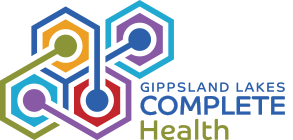One of the many challenges for people working in the farming sector is that they can become exposed to the consequences of mental distress as they go about day-to-day work in the field. In short, this means recognising when someone they are working with experiences mental distress and having the skills and understanding to keep engaging or withdraw safely as appropriate. But we know, the story doesn’t end there, people don’t always leave stressful or risky situations unaffected themselves.
The end result is called ‘vicarious trauma’ and it is in the workplace interest that the issue is recognised and that appropriate supports are in place or readily accessible to affected staff. Lack of self-care skills and supports, combined with long-term exposure to critical incidents in the field or sharing the unaddressed emotional responses of other workplace colleagues, can also lead to what we know as ‘cumulative trauma’. This is basically ‘stuff’ that builds up over time and spills out at home or at work.
Businesses, managers and staff have a shared responsibility to acknowledge these issues and to acquire appropriate skills for work in the field, how to manage the business response when staff return to work and how to manage personal responses at work and at home.
A Partnership established through a Victorian Government Mental Health Drought Funding Initiative and led by Gippsland Lakes Community Health (GLCH) has combined with the Victorian Chamber of Commerce & Industry and Lifeline Australia, to deliver a Frontline Workforce and Business Training package in Sale and Bairnsdale. The program involves three full-day sessions, which are currently scheduled in Bairnsdale on Wednesday 30 October, Tuesday 12 November and Wednesday 27 November; and in Sale on Tuesday 29 October, Wednesday 6 November and Tuesday 26 November 2019.
The training supports businesses, managers and staff to create and maintain a mentally healthy workplace by developing work plans that are responsive to staff and business needs. Staff who aren’t counsellors will also learn communication and basic counselling skills if they find themselves in ‘difficult’ situations. Stress management and self-care issues are also a key part of the training package.
For additional information or to reserve your place at the training, contact Project Coordinator, Andre Zonn on ph: 0429 953 063 or email andrez@glch.org.au
